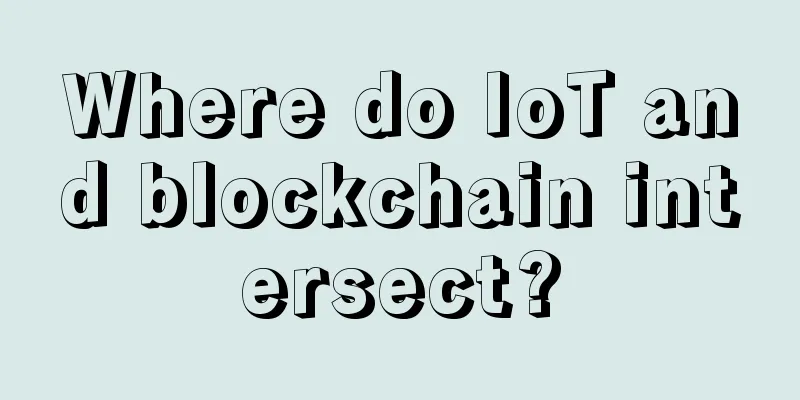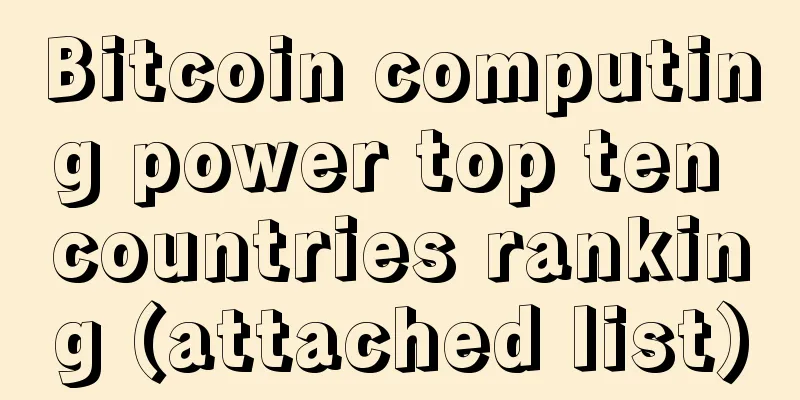Where do IoT and blockchain intersect?

—Ryan Selkis, Investment Director at Digital Currency Group Blockchain has been very popular since its inception, with a lot of investment, startups, and applications bursting in this field. The future of blockchain is bright, and LTP has been at the forefront, covering all the news in this field and recent events. In our previous article, we mentioned the application of blockchain in the financial field and non-financial fields. Currently, there has been a huge increase in the number of ways that real-world assets are combined with blockchain and the number of digital transactions. One of the most important non-financial applications is the Internet of Things. According to the concept proposed by IBM,
There are various blockchain applications for IoT and smart systems. When applied to IoT, the concept of blockchain opens up unlimited possibilities for innovation. Blockchain technology can be used to track the usage history of devices. It can coordinate transactions between devices. This technology will make IoT devices independent by providing data transactions between devices and between devices and people. Various established technology companies and startups have been exploring these applications. They have invested in and researched a lot of solutions that may use this technology. The main purpose of these applications is to connect the home network to the cloud and surrounding electronic devices (home automation). The following are some of the companies in this direction: 1. IBMIBM was one of the first companies to announce their plans for blockchain development, and it has established multiple partnerships at different levels and demonstrated its love for blockchain technology. It has published a report stating that blockchain can be the best solution for the Internet of Things. In January 2015, IBM announced a project - the ADEPT project, a research project that uses peer-to-peer blockchain technology. IBM has also built a proof-of-concept system with Samsung for the next generation of IoT systems, based on IBM's ADEPT (Autonomous Decentralized Peer-to-Peer Telemetry), which consists of three elements: Ethereum, Telehash and BitTorrent. Using this platform, both companies hope to bring about a device that can automatically detect problems and automatically update without any human intervention. These devices will also be able to communicate with other nearby devices to power batteries and save energy. 2.FilamentFilament has proposed their sensor device, which allows a secure, full-range wireless network to be deployed quickly in seconds. The device can communicate directly with other TAP devices within 10 miles and can be connected directly through a mobile phone, tablet or computer. The company operates using a blockchain-based technology stack, which enables Filament devices to independently process payments and allows smart contracts to ensure that transactions are credible. The company was founded in 2012 and recently received $5 million in joint investment from Bullpen Capital, Verizon Ventures and Samsung Ventures. 3. Ken Code – e plugePlug is a product of Ken Code. According to Ken Code's white paper, ePlug is a small circuit board with an "ePlug certified" power socket and light switch inside. For security and reliability, the product provides optional Meshnet, distributed computing, end-to-end data encryption, wireless connectivity, timers, USB ports, temperature sensors, tactile sensors, light and motion sensors, and LED lights to provide reminders. The product uses a blockchain-based login method to ensure security. Once the correct network address and URL are entered, the ePlug owner will see a login interface. Initially, blockchain platforms like OneName.io and KeyBase.io will be used to authenticate logins to ePlug. 4. TilepayTilepay: Provides a human-to-machine or machine-to-machine payment solution for the existing IoT industry. The company has developed a micropayment platform. Tilepay is a decentralized payment system based on the Bitcoin blockchain and can be downloaded and installed on a personal computer, laptop, tablet or mobile phone. All IoT designs will have a unique token and are used to receive payments through blockchain technology. Tilepay will also establish an IoT data trading market so that everyone can purchase data from various devices and sensors in the IoT. And it will ensure the secure transmission of data and payments in a P2P manner. Note: Kate is a full-time writer at LetsTalkPayments.com. She likes to write about mobile payments and mobile commerce. |
>>: Bitcoin has soared strongly, especially in RMB
Recommend
Women with these facial features have the strongest ability to gather wealth and can attract wealth into the house after marriage
Women with these facial features have the stronge...
How many children can you have in your lifetime according to palmistry
How many children can you have in your lifetime a...
Is it good to have wrinkles on the forehead?
It is not difficult to find out through careful o...
Who is hurt by Bitcoin’s high transaction fees?
As the Bitcoin block size debate continues, uncon...
What does a cheating woman look like? How to tell a woman's sexual desire from her mouth
Some people just like excitement because they alw...
What does a mole on the middle toe mean?
Mole on the middle toe This represents the Stomac...
Is it good for a boy to have a mole under his ear? What will his fate be like?
Moles are not just melanin deposits, they also re...
Women with thick fingers are destined to have a hard life
Everyone’s destiny is different. Some people have...
Bitstamp joins hands with France’s largest bank to provide Bitcoin services to investment funds, Bitcoin investment finally gets full authorization and supervision
European bitcoin exchange Bitstamp and France’s l...
Excess returns from cryptocurrency equity crowdfunding
Original title: Excess returns from cryptocurrenc...
The press conference on the global issuance of Shangbi was successfully held in Dubai
──Business Token Global Launch in Dubai September...
Palmistry: Women's Romantic Luck Will Be Strong After Middle Age
I have a female friend who is in her forties, but...
What is the fate of being born in 1952?
We can roughly infer a person’s destiny from the ...
What do wrinkles on the forehead indicate?
The forehead is a very important part, which cont...
Coinbase's US government liaison joins bank
约翰·柯林斯, head of policy and government affairs at b...









